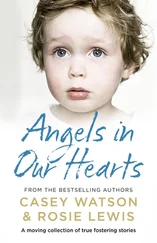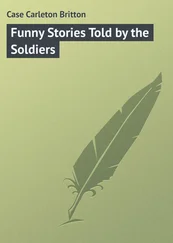For the first time since I’ve known her, Lindy looks at me as if she doesn’t know what to say. An accident like this is like nothing she ever expected or prepared for. “Please,” she says quietly, looking everywhere but where the glass sticks out of the skin between the fleshier side of her wrist and the dangerous web of veins. “Please get it out.” Her voice is small and polite in the face of this small violence.
Lindy has never asked anything from me, and even though what she’s asking is obvious, I’m confused. But I don’t turn my head the way Mary does; I stand up and take Lindy’s hand.
“Get it out,” Mary says as she slides down the couch, away from us. She puts the knife on the floor beside her. “Hurry up and get it out.” She covers her ears as if we are all screaming. Then she is out the door and headed for the office.
I slide the glass out of Lindy’s soft flesh slowly. The glass is barely lodged in her skin, but her fingers curve inward as I pull. The blood follows the glass to the surface and rushes out fiercely, though the cut isn’t very deep. I remember Jonathan asleep after he’d exhausted himself. His breathing was the sound of waves ready to crash over me while I rested in cloudy bliss, my head rising and falling with his chest. I was always amazed to see Jonathan asleep, all that power shut down. The red of Lindy’s blood is electric against the rest of this gray life. I stand and sit her down in the chair by the phone. She has her good hand to her face as if she’s been slapped.
I grab up all the paper towels strewn around the unwrapped Christmas ornaments, press them to Lindy’s wrist, and as she opens her curled fingers we both watch the blood bloom across the white. The swamp cooler makes a noise as if something is trapped deep inside it. “Quiet,” I say to the noise. “Quiet.” My voice sounds as if I know what I’m talking about. I stroke Lindy’s hair, and she closes her eyes. “Quiet.” She seems grateful for the suggestion.
Burn smoky fires in the daytime and bright ones at night . One of Jonathan’s Outward Bound phrases runs through my head. It’s the same one that went through my head the day I left. I considered burning the house down, lit a match, then blew it out because I knew even then that I might want to come back.
When I push Lindy’s hair back from her face, my fingertips brush the sprawling yellow bruise and I trace its outline. She pushes her head into my hand, resting it there. A new bunch of paper towels pressed to Lindy’s wrist, we watch again as the red seeps thick through the white. The blood moves with a purpose, as if it were seeking me out for comfort.
I can already hear down the street the fire engine and the ambulance that come when the counselors call 911. The overnighter is new, and she must have panicked when Mary ran into the office. She walks in, followed by Mary biting her just-trimmed nails. Behind her are Joan and her dented-head daughter, Anna and her two children. The rest of the women are on their way. We all sleep without really sleeping, poised.
“Lindy, come up to the office,” the counselor says sternly. She is young and pretty, and her tone of voice betrays her fear of the blood, of Lindy, of seeing so much of our lives she won’t recover from it. Lindy opens her eyes slowly and looks at me as if she is about to tell me a crucial piece of information.
“I can tell she really cares,” Lindy says instead, fake and sweet as the put-together Christmas tree. She shrugs toward the counselor, who is fiddling with the knobs on the lounge washer, shutting the door to the dryer competently.
“Press hard.” I give her a new bunch of paper towels as the counselor comes over to help her up. Mary stands nearby, shifting from one foot to the other.
Urgent exhaust rises from the ambulance and the fire engine outside the gate. I imagine someone calling into the shelter from out there to listen to my own urgency — a woman from her burrow in the snow to tell me in her icy language that it is better to dig deep into the frost than to stand around and wait for someone to let you back in. When I go back to my room, I wrap the razor I stole from the office in a wad of toilet paper and flush it down the toilet.
Later that night Lindy knocks on my door. Her wrist is bandaged, as if she’s been rescued. Everyone has retreated to her room except Mary, who slipped out the gate with the paramedics to meet her boyfriend at the biker bar. Lindy and I walk out into the courtyard and lie down in the damp sandbox under the glow of the shelter lights, swishing our legs and arms back and forth, making our own version of snow angels until our borrowed clothes are dark with wetness.
“The sky is like nothing I’ve ever seen before,” Lindy says, still lying in the sand. Even though it’s the same black sky that I saw through the window as I lay on Jonathan’s chest hoping his deep, easy breathing would last forever or that it would stop quietly in the night, I know what she means.
On our third date, Jonathan drove me over the state border to prove that we could go anywhere together. The second time we made love, he bit my shoulder and broke the skin. Jonathan said the blood was love when love is everything, and when he said this I thought of how, when we’d driven over the state line, it had seemed for a minute insignificant. Once we’d passed over the line I’d thought — and then put it out of my head in the interest of romance — that the landscape looked just the same. More trees, fields, and small, slanted houses.
For now, I’m content to watch Lindy next to me holding her bandaged hand above her to keep it from getting wet, a flag of sorts to stake out our territory. We are any age looking up at the sky from the places we’ve made in the sand with our bodies digging deeper.
HONEY, darling, sweet pooch,” my mother calls from downstairs. “Sweet darling, honey, pooch.” Her voice does not waver as she bends down to pick some discarded thing up off the floor, spot-cleaning the house though she’s meeting her date at a restaurant. “Honey, sweetie, darling.” She’s forgotten why she’s saying these words, forgotten that she wants my attention. She is thinking of the evening ahead of her, whether to wear her hair up or down.
“What?” I call down from my old bedroom strewn with objects I used to love.
“I’m going out,” she says, as if to say this is how you do it. I can hear her looking at herself in the mirror in the front hall, smoothing an eyebrow with an energy she hasn’t had in years. She goes out almost every night after she gets home from her job as the administrator of the obstetrics division in a hospital. She meets men through the classifieds. I’ve learned these things since I came back home during a lull in my life, here at the age of thirty-one.
“You can recoup,” she said when she invited me home upon hearing the news of my life, as if living without love or money were an illness. “Honey, sweetie, darling, pooch,” she said, her words like outstretched arms.
I protested, though I knew what I had to do.
Now I come downstairs in the sweatsuit that I put on and stay in after I get home from work as a temporary in a graphics-design firm downtown. “Where are you meeting him?” I ask.
“Well-lighted, busy, don’t worry,” she says, putting on very red lipstick. Her powder clings to the soft hair on her cheeks. She has gotten her second wind of beauty ten years after my father died.
I step out onto the front porch with her, into the night and a neighborhood filled with houses exactly like this one, only backward on the inside. Across the street, Raymond stands in his kitchen window, pausing as he does the dishes to watch us standing on our porch.
Читать дальше












